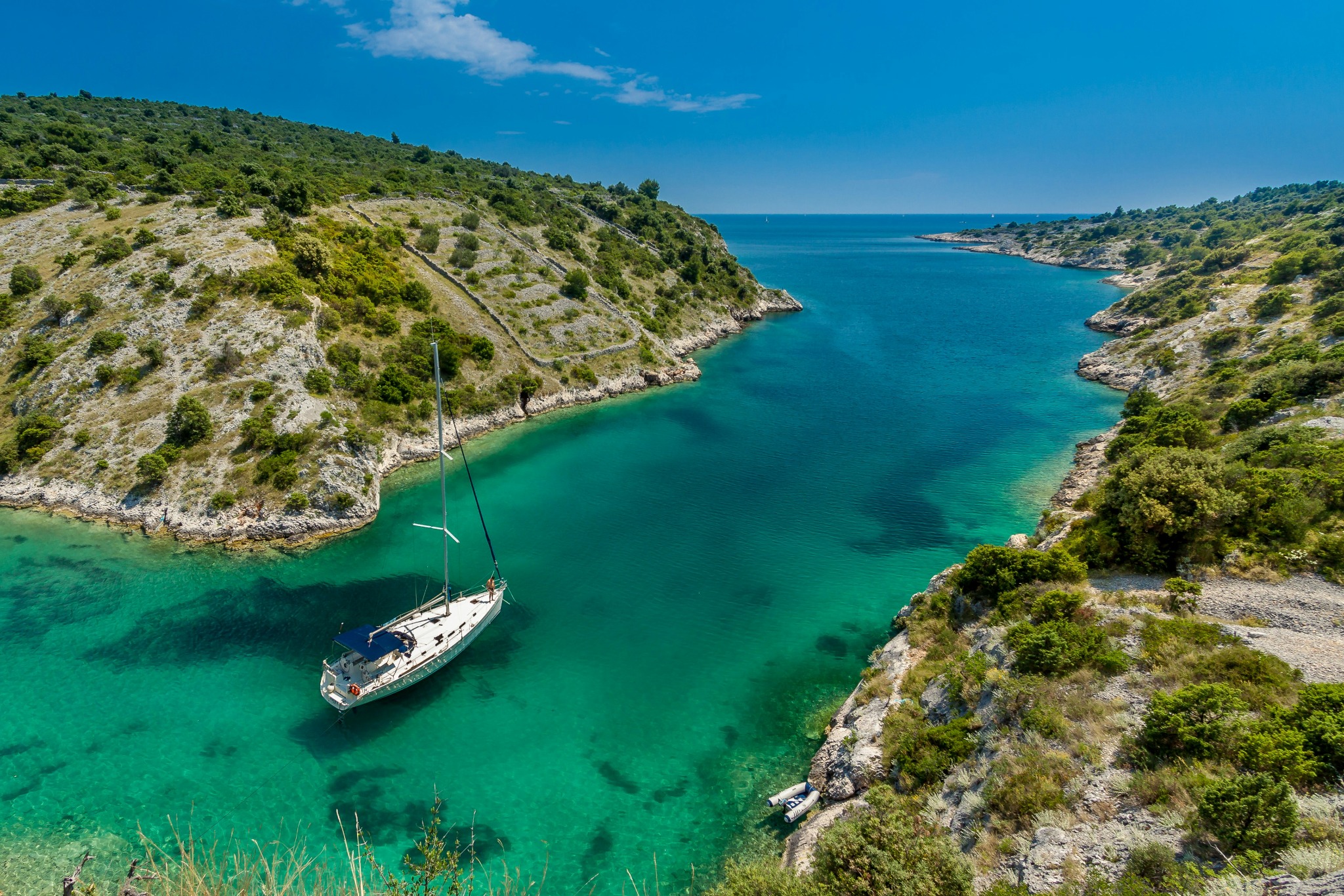
Liveaboard Diving in Portugal
The Azores Islands, emerging from the depths of the Atlantic Ocean, are a haven for divers seeking an extraordinary underwater adventure. Diving in the Azores, you're transported into an aquatic world where the volcanic origins of the islands have sculpted unique underwater landscapes. Santa Maria Island, known for its vibrant marine life, is a paradise where divers can encounter large schools of mobula rays, especially during the summer months. Pico, on the other hand, offers encounters with curious and friendly dolphins and the chance to dive with blue sharks in the open ocean. Faial is celebrated for its underwater volcanic craters and gardens, providing a home to diverse marine species like the elusive dusky groupers and barracudas.
The Princess Alice Bank, a submerged seamount, is a world-renowned dive site accessible by liveaboard. Here, divers can swim alongside large pelagic species, including manta rays and various species of sharks. The Azores' crystal-clear waters offer visibility up to 30 meters, allowing divers to fully appreciate the thriving coral ecosystems and the dramatic volcanic rock formations that define the underwater terrain
When To Go Diving in Portugal
The best time to dive in the Azores is between June and October. During these months, the water temperature ranges from 17°C to 24°C (63°F to 75°F), and the visibility is at its peak. This period is ideal for experiencing the diverse marine life and exploring the unique topography that the Azores offer
Frequently Asked Questions About Portugal
What marine life can be seen?
Diving in the Azores offers a unique opportunity to encounter a diverse array of marine life in the rich waters of the North Atlantic. The archipelago's location, at the meeting point of various ocean currents, creates an ideal environment for a wide range of species. Here are some of the marine animals divers can expect to see:
Pelagic Fish: The open waters around the Azores are a haven for large pelagic species. Divers can encounter blue sharks, mako sharks, and, occasionally, whale sharks, the largest fish in the ocean.
Dolphins and Whales: The Azores are one of the world's premier destinations for whale and dolphin watching. Species like the sperm whale, pilot whales, and various types of dolphins are commonly seen. The islands are a key spot for cetacean migration, offering chances for both above and below-water encounters.
Rays: The waters are also known for sightings of different ray species, including the majestic manta rays and smaller, yet equally fascinating, stingrays and eagle rays.
Reef Fish and Invertebrates: The reefs around the Azores teem with a variety of fish and invertebrates. Divers can spot colorful parrotfish, wrasses, and schools of barracuda. There's also a rich microlife, including various species of nudibranchs and crustaceans, which are a delight for macro photographers.
Groupers and Jacks: The rocky underwater landscapes provide perfect habitats for groupers and jacks, which are often seen patrolling the reef.
Tuna: The Azores is a hotspot for various species of tuna, making it an exciting destination for those interested in larger game fish.
Unique Local Species: The archipelago's isolated location means divers can also encounter species that are unique to the region or less commonly seen in other parts of the world.
Coral Formations: While the Azores are not known for large coral reefs like those in tropical destinations, divers can still enjoy unique coral formations, including black corals and various sponges, adding to the underwater biodiversity.
This rich and varied marine life, combined with the clear waters and dramatic underwater topography, makes the Azores a must-visit destination for divers interested in both large pelagic encounters and the colorful life of the reefs
Level of Diving Experience Required
The Azores, with its diverse range of dive sites and sometimes challenging conditions, require a certain level of diving experience, particularly for those planning to join liveaboard diving cruises. Most liveaboards in this region have specific requirements to ensure the safety and enjoyment of all divers on board.
- Advanced Open Water Diver (AOWD) Certification: A minimum of an Advanced Open Water Diver certification is typically required for liveaboard diving in the Azores. This certification indicates that the diver has received training and has experience beyond the basic open water level, including deeper dives (up to 30 meters/100 feet) and navigation skills.
- Logged Dives Requirement: Liveaboards often require divers to have a certain number of logged dives, commonly around 40 or more. This requirement ensures that divers joining the trip have sufficient experience and are comfortable in various underwater conditions. The Azores, known for its dynamic and sometimes demanding dive environments, can present situations like deep dives, strong currents, and limited visibility, which are better handled by more seasoned divers.
- Additional Training and Experience: For specific types of dives, such as wreck penetration or deep dives beyond the limits of recreational diving, additional specialized training and experience are required. Divers interested in these types of dives should have appropriate certifications and logbooks documenting their experience in such conditions.
Diving in the Azores, especially on liveaboards, is best suited for divers who have an Advanced Open Water certification, a reasonable number of logged dives, and are comfortable in varying and sometimes challenging sea conditions. This level of experience ensures that divers can fully enjoy and safely explore the remarkable underwater world of the Azores

